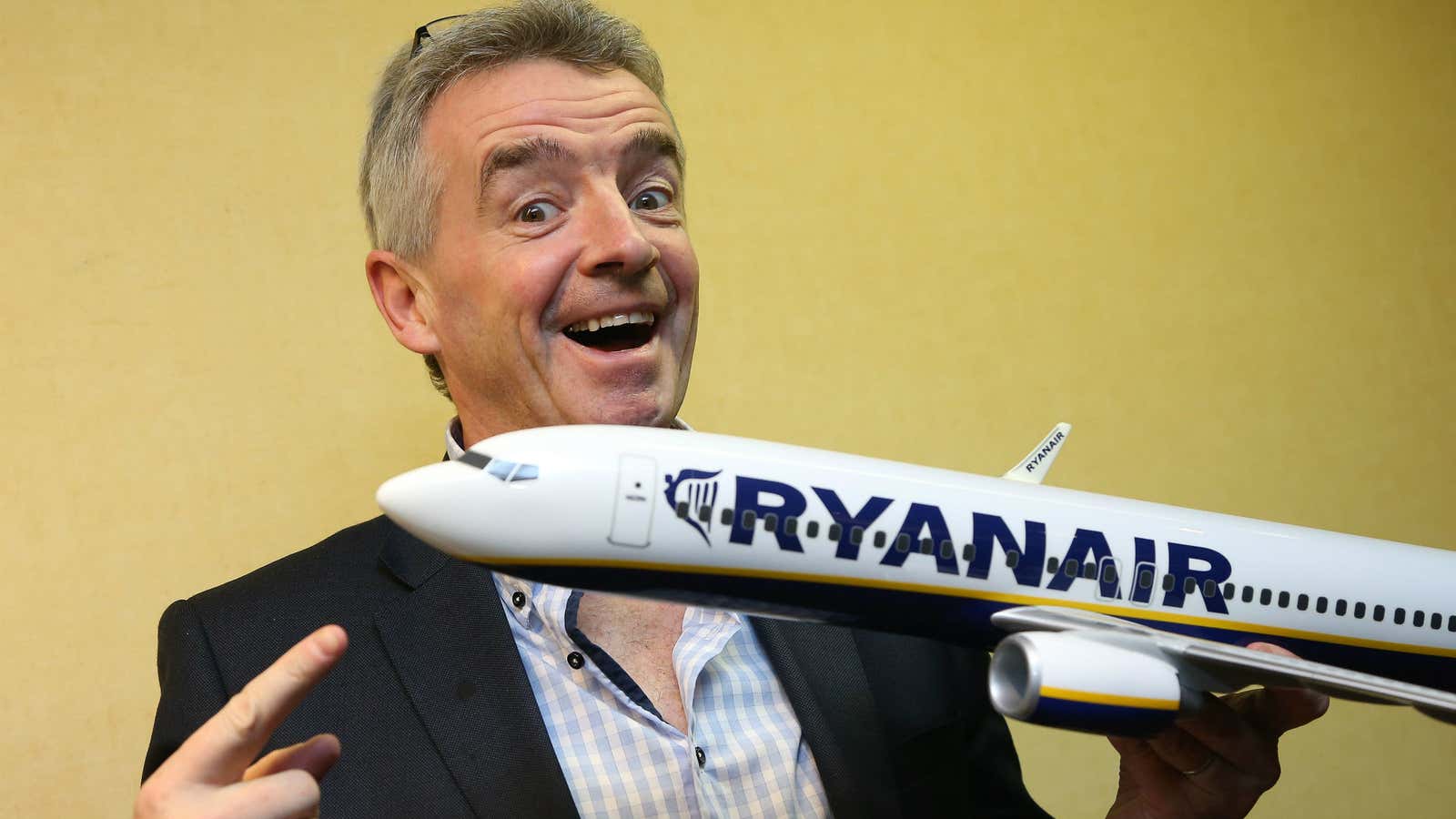If you don’t have anything nice to say, don’t say anything at all. It’s advice that parents the world over give their kids. But few of those kids put that simple advice to use making billions of dollars in profit.
Two years ago, Michael O’Leary, the outspoken chief executive of low-cost airline Ryanair, said the company would “stop unnecessarily pissing people off.” Hardly a revolutionary strategy, but a fairly radical departure for O’Leary, famous for his sharp tongue and brusque manner. In return for incredibly low fares, Ryanair made its name offering customers bare-bones service and rigid fees for the few perks it made available.
The kinder, gentler Ryanair that has emerged from its ”Always Getting Better” campaign—lower fees, relaxed baggage allowances, a more user-friendly website—is paying off handsomely. In its latest earnings report (pdf), the airline boasted double-digit percentage growth in passengers, revenue, and profit over the past six months. Ryanair recently upped its profit forecast for the current fiscal year (ending in March), and now says that it expects to hit the top end of that range of €1.23 billion ($1.35 billion). Business is “scarily good,” O’Leary says.
Over the past two years, Ryanair’s shares have more than doubled—they are worth €9 billion in extra market value—leaving its rivals in the dust:
This isn’t all down to friendlier customer service. All European airlines have beaten market expectations recently, thanks to low oil prices and rising consumer confidence, particularly in the UK. But investors are rewarding Ryanair disproportionately, betting that the combination of improving industry conditions and its charm offensive will win it even more market share from low-cost rivals like EasyJet and full-service competitors like British Airways, Lufthansa, and Air France. Brokerage Liberum noted in a research report that Ryanair is ”comfortably the highest rated European airline in our coverage universe.”
Ryanair reckons it will remain Europe’s largest airline by passengers for some time to come—it upgraded its outlook for passengers this fiscal year by 1 million, to 105 million. It now expects to carry some 180 million passengers per year in 2024, up by 20 million from its previous long-term forecast.
Parents will take comfort from O’Leary’s lesson in the power of being nice—that’s apparently all it takes to win millions of new customers and generate billions in profits.
